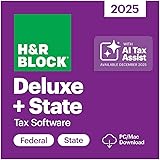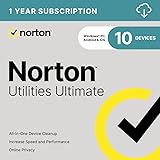The Importance of Smart Credit Card Usage
Smart credit card usage is crucial for maintaining good financial health and avoiding common credit card mistakes. In today’s world, credit cards have become an essential tool for managing personal finances. However, if not used wisely, they can lead to debt and financial instability.
One of the key aspects of smart credit card usage is effective financial management. It is important to create a budget and stick to it, ensuring that you spend within your means and avoid unnecessary debt. By tracking your expenses and setting limits on your credit card usage, you can prevent overspending and maintain control over your finances.
Another important aspect of smart credit card usage is understanding the terms and conditions associated with your card. This includes knowing the interest rates, fees, and payment due dates. By being aware of these factors, you can avoid late payments or high-interest charges that can accumulate over time.
Additionally, using credit cards strategically can offer various money-saving benefits. Many credit cards offer cashback rewards or loyalty points that can be redeemed for discounts or other perks. By taking advantage of these offers responsibly, you can save money on everyday purchases or even earn valuable rewards.
Now, let’s explore five key credit card mistakes and valuable tips for maintaining healthy credit.
Mistake #1: Maxing Out Your Credit Card

Maxing out your credit card can have significant consequences on your financial well-being and credit score. When you max out a credit card, it means you have utilized the entire available credit limit on that card. This can lead to several negative outcomes.
One of the key concerns with maxing out a credit card is the impact it has on your credit utilization ratio. The credit utilization ratio is the percentage of your available credit that you are currently using. It is an important factor in determining your credit score. When you max out your credit card, it drastically increases your credit utilization ratio, which can signal to lenders that you are heavily reliant on credit and may be financially stretched.
Maxing out a credit card also puts you at risk of accumulating high levels of debt. If you are unable to pay off the balance in full each month, interest charges will start to accrue, making it even more difficult to repay the debt over time. This can lead to a cycle of debt and financial stress.
Moreover, maxing out a credit card can have long-term implications for your overall financial health. It may limit your ability to access additional lines of credit or secure favorable loan terms in the future.
To avoid this mistake, it is crucial to practice responsible debt management and use your credit cards wisely. Aim to keep your credit utilization ratio below 30% by keeping balances low and paying off debts regularly. By doing so, you can maintain a healthy credit score and ensure better financial stability in the long run.
Mistake #2: Only Paying the Minimum Payment
Paying only the minimum payment on your credit card can be a costly mistake that many people fall into. This trap can keep you stuck in a cycle of debt and make it difficult to pay off your credit card balance in a timely manner.
When you only pay the minimum amount due, you may think that you are meeting your financial obligations. However, what you may not realize is that the majority of your payment goes towards interest charges rather than reducing the principal balance.
Credit card companies typically calculate the minimum payment as a small percentage of your outstanding balance, usually around 2-3%. While this may seem like an affordable option in the short term, it can result in long-term consequences.
By only paying the minimum payment, you extend the repayment period and accumulate more interest charges over time. This means that even if you stop making new purchases on your credit card, it will take much longer to pay off the existing debt.
To avoid falling into this trap and paying off credit card debt faster, it’s important to make larger payments whenever possible. By allocating more money towards paying down the principal balance each month, you can reduce interest charges and accelerate your progress towards becoming debt-free.
Additionally, consider creating a budget and cutting unnecessary expenses to free up more funds for debt repayment. It may also be worth exploring options such as balance transfers or personal loans with lower interest rates to consolidate and manage your debts more effectively.
Remember that paying only the minimum payment on your credit card is not a sustainable strategy for long-term financial health. Taking proactive steps to pay off your debt faster will save you money in interest charges and provide greater peace of mind knowing that you are actively working towards achieving financial freedom.
Mistake #3: Ignoring Credit Card Fees and Charges
When it comes to managing our finances, credit cards have become an integral part of our daily lives. However, it is crucial not to overlook the various fees and charges that come with using them. Ignoring credit card fees can lead to unnecessary expenses and financial strain.
One common fee that many credit card holders tend to overlook is the annual fee. Some credit cards charge an annual fee for the privilege of using their services. It’s important to be aware of this fee and evaluate whether the benefits and rewards offered by the card outweigh the cost.
Late payment fees are another aspect that should not be ignored. Failing to make payments on time can result in hefty charges, which can quickly accumulate if left unaddressed. It’s essential to stay organized and set reminders for payment due dates to avoid these unnecessary costs.
For those who frequently travel abroad, foreign transaction fees can also add up quickly if not considered beforehand. Many credit cards charge a percentage of each transaction made in a foreign currency, making purchases more expensive in international settings. Exploring credit card options with lower or no foreign transaction fees can help save money when traveling.
In conclusion, ignoring credit card fees and charges can have a significant impact on our financial well-being. Being aware of annual fees, late payment fees, and foreign transaction fees is essential for making informed decisions about our credit card usage and avoiding unnecessary expenses.
Mistake #4: Opening Too Many Credit Cards at Once

Opening too many credit cards at once can have a negative impact on your credit score. When you apply for multiple credit cards within a short period of time, it results in multiple credit inquiries. These inquiries are recorded on your credit report and can lower your credit score.
Credit inquiries indicate to lenders that you are actively seeking new credit, which can be seen as a red flag. It may suggest that you are experiencing financial difficulties or that you are taking on more debt than you can handle.
Additionally, each new credit card application also adds to your overall available credit. While this may seem like a positive thing, it can actually increase the risk of overspending and accumulating debt.
To avoid this mistake, it is important to be selective when applying for new credit cards. Only apply for cards that align with your financial goals and needs. It is also recommended to space out your applications over time to minimize the impact of multiple inquiries on your credit score.
Remember, maintaining a healthy credit score is crucial for accessing favorable interest rates and securing future loans or lines of credit.
Mistake #5: Falling for Promotional Offers without Reading the Fine Print
When it comes to promotional offers on credit cards, it’s important not to fall into the trap of blindly accepting them without reading the fine print. Many credit card companies entice consumers with attractive offers such as low or even zero introductory interest rates and balance transfer fees. However, it is crucial to thoroughly understand the terms and conditions associated with these promotions before making any decisions.
One common mistake that people make is assuming that the promotional interest rate will last indefinitely. In reality, these rates are often temporary and can increase significantly after the introductory period ends. By failing to read the fine print, individuals may find themselves burdened with unexpectedly high-interest charges down the line.
Another aspect of promotional offers that should not be overlooked is balance transfer fees. While transferring a balance from one credit card to another with a lower interest rate can be beneficial, some credit card issuers impose fees for this service. These fees can vary widely and may offset any potential savings from the lower interest rate.
To avoid falling for promotional offers without reading the fine print, it is essential to carefully review all terms and conditions associated with the offer. Pay close attention to details such as how long the promotional period lasts, what happens after it ends, and any additional fees or charges involved. By taking a proactive approach and understanding all aspects of the offer upfront, consumers can make informed decisions about whether or not these promotions are truly advantageous for their financial situation.
Take Control of Your Finances by Avoiding these Common Credit Card Mistakes
Taking control of your finances requires responsible credit card usage. However, many individuals fall into common credit card mistakes that can lead to financial difficulties and debt. By being aware of these pitfalls and taking proactive steps to avoid them, you can effectively manage your credit cards and make the most of their benefits.











